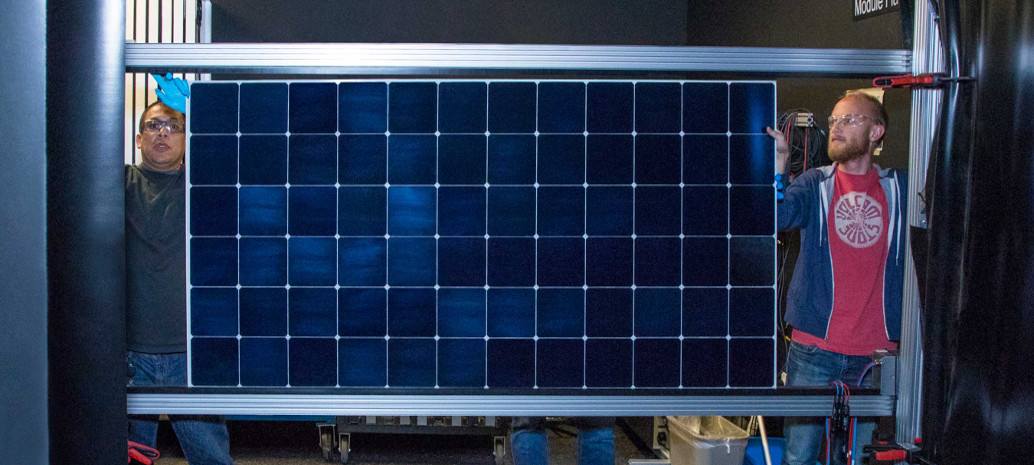SunPower has built its business on making the highest efficiency solar products commercially available for the rooftop market, based on its Maxeon back-contact technology. But after years of persistent losses, SunPower is shifting gears, not only in terms of its business approach but its technology.
In late 2015 SunPower unveiled a new module designs based on overlapping cells made from strips of silicon wafers, as a radical departure from its trademark modules based on interdigitated back contact (IBC) cells. However, the company has not stopped working on back-contact technology, and on recent results calls has been describing work on a new IBC cell and module product.
Yesterday SunPower provided more information on the factory which will provide this product, which is based in San Jose, California and has already begun making cells. In a press release long on hype and short of details, SunPower stated that this pilot line in its research facility runs from silicon to panel, utilizing a “revolutionary manufacturing approach” – but does not say what that means.
Less is known about the new technology. SunPower says that the cells “extend on” its X-Series technology, but again has provided almost nothing in the way of details. The most we have is SunPower CEO Tom Werner statement on the company’s recent quarterly results call that SunPower believes the technology “will significantly reduce cost while maintaining industry-leading performance”.
If it can achieve a higher efficiency, this will be impressive, as X-Series cell have already reached more than 25% efficiency in mass production, the highest level for any mass-produced silicon PV cell.
SunPower will not be rolling out significant volumes from this research facility, as the line only has the capacity to produce 5 MW per year when fully ramped, which SunPower expects in 2018. However, the first customers, including schools, will begin receiving product from the line later this year.
This content is protected by copyright and may not be reused. If you want to cooperate with us and would like to reuse some of our content, please contact: editors@pv-magazine.com.



I am a sunpower customer and was very disappointed when I was not notified by sunpower that my system was down you need a monitor in place that helps let customers know this it cost me a horrible amount of money $2600.00 I paid out of my pocket for this mistake so I will not recommend your company to my friends and I only discovered it because I received my smud bill. They helped by breaking my payment into a break down over 7 mos not sunpower they offered no help with my bill